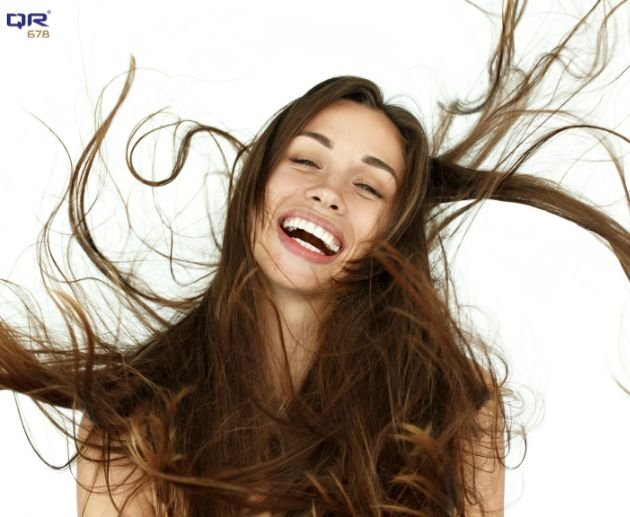Are Hormones Also Responsible for Hair Growth and Care?

When it comes to hair care, the first thing that usually comes to our mind is shampoos, oils, conditioners, or external treatments. However, it turns out that a more complex and powerful system is working beneath the surface of our hair, that is, our hormones. These natural chemical messengers are essential not only for the regulation of the functions of our organs but also for the management of the growth, thickness, texture, and condition of our hair.
Being aware of the ways in which hormones affect your hair can give you insights into how to deal with hair loss, stimulate regrowth, and keep your hair in good condition.
Also Read: how to take care of your hair after bleaching
The Hair Growth Cycle and Hormonal Control
Hair growth is not continuous, but it follows a cyclical pattern that consists of three phases:
1: Anagen (Growth Phase)
2: Catagen (Transition Phase)
3: Telogen (Resting and Shedding Phase)
Hormones are the main factors that decide the length of the cycle phases. The condition of the hormonal balance allows for more hair follicles to be in the anagen phase, thus enabling better and fuller hair. On the contrary, if hormones become imbalanced, this can lead to over-shedding, thinning, or even hair loss.
Key Hormones That Affect Hair Growth
1. Androgens (e.g., Testosterone and DHT)
Androgens are male hormones that are found in both men and women. Dihydrotestosterone (DHT), which is a substance derived from testosterone, is a key result that is the main driving factor behind androgenetic alopecia (pattern baldness). It basically makes hair follicles smaller over time, thus limiting hair growth and the thinning of the hair.
2. Estrogen and Progesterone
It is considered that the female sex hormones, such as estrogen and progesterone, have a beneficial influence on hair growth. High levels of estrogen during pregnancy extend the growth phase of hair, which makes hair appear to be thicker and voluminous. Still, the decrease in estrogen after giving birth and during menopause is very often the reason for hair loss.
3. Thyroid Hormones
Untreated thyroid disorders, both hypothyroidism and hyperthyroidism, may lead to changes in hair that make it look dull, fragile, and falling out. Normal thyroid function is a must for keeping the hair growth cycle in check.
Also Read: how to take care of hair during menopause
4. Insulin and Cortisol
Disorders such as insulin resistance (which is often the case in PCOS) and continued stress (that increases the level of cortisol) can mess with hormonal balance and become a cause of hair loss, not only in the scalp but also
Is Hormonal Hair Loss Permanent?
While hormonal hair loss is usually due to an imbalance in hormones, it can often be cured if the underlying causes are identified and treated. However, if the hair loss is caused by chronic issues such as polycystic ovary syndrome or androgenetic alopecia, it is very likely to be continuous and will only get better by managing the condition. On the other hand, if the hair loss is caused by temporary factors such as postpartum hair fall, then the hair will most probably regrow anyway.
The process of restoring balance in the hormonal system by means of medical treatment accompanied by changes in lifestyle and diet generally leads to the reversal or at least a slowdown in hair thinning.
Tips for Hormone-Healthy Hair
1: Maintain a balanced diet that includes protein, vitamins (especially the B-complex group and vitamin D), and minerals like zinc and iron.
2: Make sure to get your hair checked with a specialist regularly if you observe that it falls out excessively or becomes thin. One of the first symptoms of a hormonal disorder, such as thyroid dysfunction, is changes in hair.
3: Alleviate your stress by means of mindfulness, physical activities, and getting enough sleep.
4: Don't use harsh chemical treatments because they can make the condition of your hair follicles worse and can also damage the scalp.
Also Read: how to take care of thin frizzy hair
Conclusion
To state it simply, hormones are the main agents when it comes to hair growth and care. They not only affect the length of individual hair by enabling it to grow but also decide when it will fall; thus, it is very important to have a balanced hormonal system in order to have healthy, shiny hair. Topical products might be helpful for the hair to be of better quality from the outside, but internal hormonal disorders are definitely the key to hair being healthy for a long time.
If your hair problems persist, you may as well consider the hormonal aspect of the issue as well. With a correct diagnosis and a holistic approach, you will be able to regain your hair health control, naturally and efficiently.